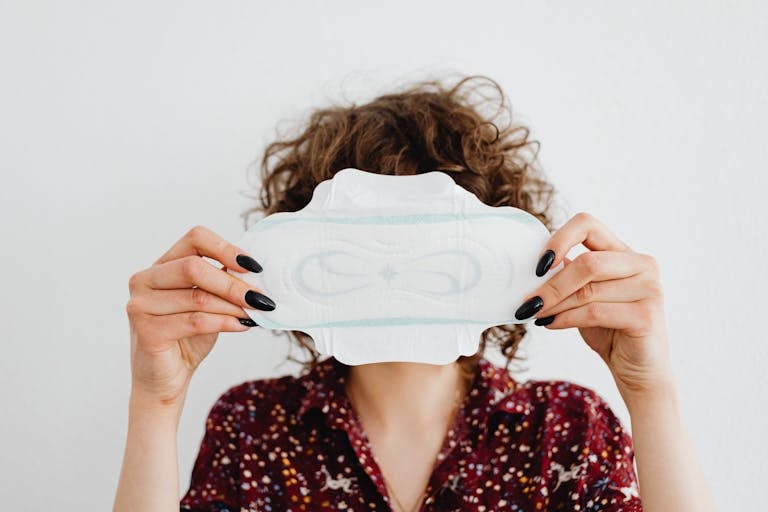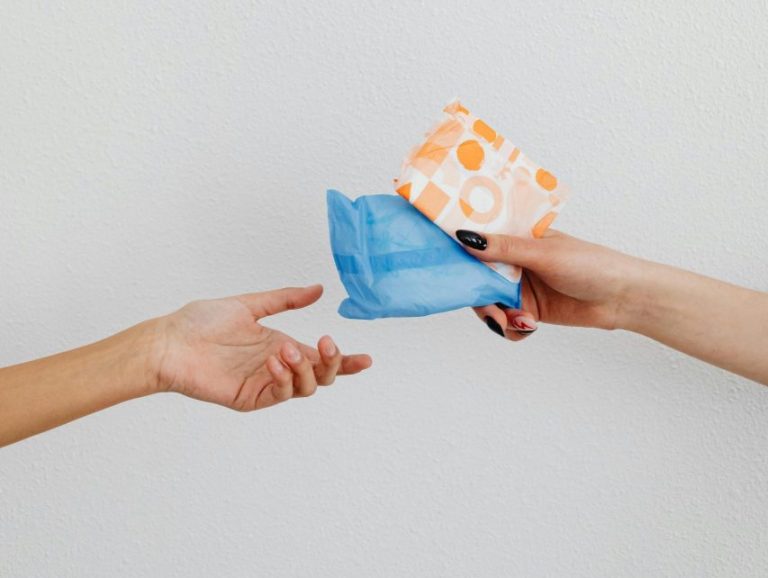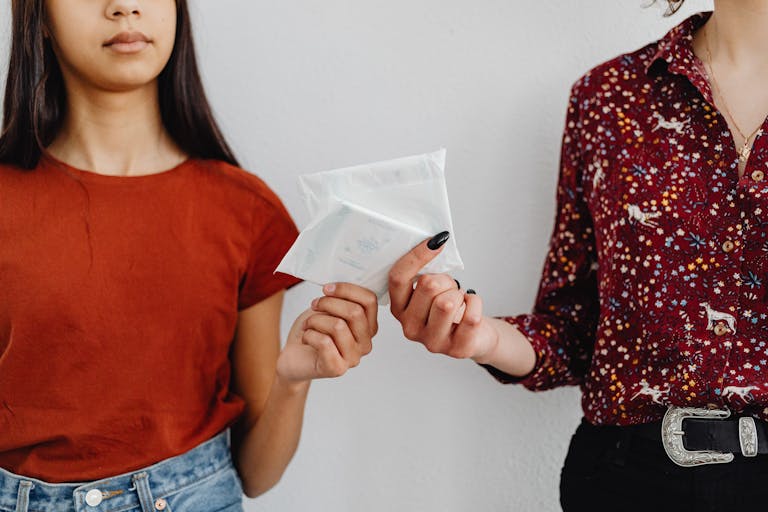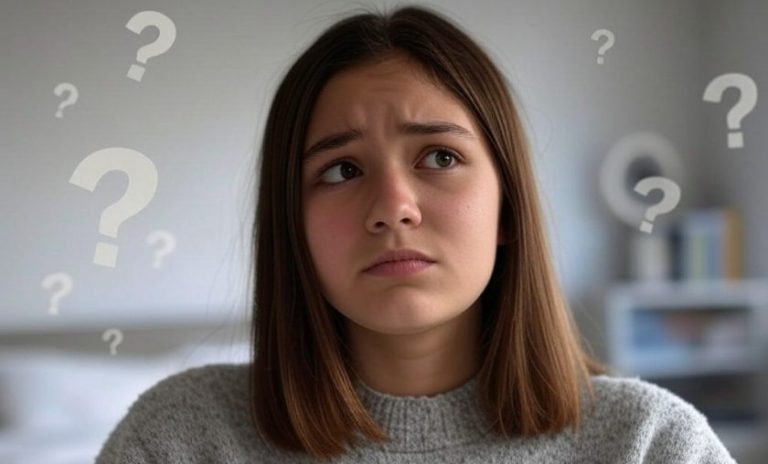I remember sitting in my 7th-grade math class when it happened – my first period arrived without warning. In my small school, I was one of the first girls to start menstruating, which made everything so much more isolating. There were no whispered conversations to learn from, no friends to turn to for advice – just what little I’d learned from a brief health class video. Now that my own daughter is asking questions about tampons, I’m determined to create a different experience for her. I want to have the open, honest conversations I wish I’d had back then. Did you know that 43% of girls report feeling unprepared when they get their first period? I was definitely one of them, but together, we can change that statistic for our daughters.
When Is the Right Time to Start the Period Talk?
Being one of the first girls in my small school to get my period meant I was navigating these changes almost entirely alone. The only information I had came from that brief health class video, which honestly left me with more questions than answers. Looking back, I wish I’d had someone to talk to about all of this.
The truth is, the perfect moment to start these conversations isn’t when our daughters are already experiencing changes – it’s before they begin. Now that my own daughter is asking about tampons, I realize these natural moments of curiosity are golden opportunities for open discussion. Research shows the average age of first menstruation is 12.5 years, but it’s important to start these conversations well before that milestone.
Here’s what experts recommend: instead of having one big, scary “period talk,” create a series of smaller, more digestible conversations. Start around age 8-9, which gives girls plenty of time to process and ask questions before their first period arrives. I wish I’d had that chance – being caught off guard in math class is definitely not the ideal way to start this journey!
Watch for signs that your daughter is ready for more information. Maybe she’s starting to develop breast buds, or perhaps, like my daughter, she’s asking questions about period products she’s noticed. These are your cues to open up the conversation in an age-appropriate way.
Breaking Down the Period Talk by Age Groups
In my small school, there was no gradual introduction to puberty topics – just that one clinical health class video that left me feeling more confused than prepared. I don’t want that for my daughter or any other young girl.
For 8-10 year olds, keep it simple and foundational. Think of it like building blocks – you’re laying the groundwork for future conversations. Use simple terms and focus on the basics: “Our bodies change as we grow up, and one of those changes for girls is getting their period.” Experts recommend using clear, straightforward analogies that make sense to this age group, like comparing the menstrual cycle to seasons – it’s a natural, recurring part of life.
When it comes to 11-12 year olds (right around where I was when I got my first period), you can get more specific. This is the age where practical information becomes crucial. I still remember trying to figure everything out alone in that math class bathroom! Share concrete details about period products, what to expect, and how to handle periods at school – especially if, like me, they might be one of the first in their class to start.
For 13+ year olds, it’s time to dive deeper into the science and emotional aspects of menstruation. Explain the hormonal cycle, discuss different product options, and talk about tracking periods. Remember, some girls might feel embarrassed or anxious – I know I did! – so maintain a matter-of-fact, judgment-free tone.
Essential Topics to Cover in Your First Period Discussion
Let me tell you, nothing is worse than being caught off guard by your period with zero preparation! I learned this the hard way in that math class, with no one to turn to for help. Now, as I prepare for these conversations with my own daughter, I know exactly what information girls need to feel confident and prepared.
Start with the basics of what actually happens during menstruation. Explain it in clear, simple terms: “Every month, your body prepares a special lining in your uterus, like making a soft bed. If there’s no baby, this lining comes out as your period.” Use anatomically correct terms – I wish my health class had done this instead of using confusing euphemisms that left me with so many questions!
When it comes to symptoms, be honest but not scary. Back then, I was terrified when I got my first cramps because no one had warned me about them! Share what’s normal: cramps, fatigue, and back pain are common experiences during your period. I remember feeling so alone, wondering if what I was experiencing was normal – let’s make sure our daughters don’t have those same fears.
Let’s talk period supplies! Show different options and explain how to use them. Create a hands-on demonstration with water and a pad to show absorption – this would have saved me from some embarrassing leaks in my early days! Walk through the step-by-step process of changing pads or tampons, including proper disposal. These are the practical details that make a huge difference when you’re twelve and trying to figure it all out on your own.
Creating a Supportive Environment for Period Conversations
In my small school, periods were treated like a secret we weren’t supposed to talk about. The silence around the topic only made everything more confusing and scary. Now, as I prepare for these conversations with my daughter, I’m determined to create an environment where questions are welcomed and nothing is taboo.
Start by normalizing period talk in your household. Keep supplies visible in the bathroom instead of hidden away like they’re something shameful. Use proper terms for body parts and processes – no more weird code words! I remember how frustrating it was trying to decipher what adults meant when they used vague terms like “that time” or “monthly visitor.”
When your daughter asks questions, even if they seem awkward or come at an inconvenient time, try to answer them honestly and immediately. My heart breaks a little remembering how alone I felt with my questions, having no one to turn to. That’s why when my daughter asked about tampons, I knew it was time to start these important conversations.
Create safe spaces for these discussions. Maybe it’s during a car ride (less pressure when you’re not making direct eye contact), or while working on a craft project together. The goal is to make these talks feel natural and comfortable, not like a formal lecture.
Preparing Your Daughter for Her First Period
If there’s one thing I’ve learned from my own experience of being caught unprepared in math class, it’s that preparation is everything! Let’s set our daughters up for success with practical tools and knowledge they can rely on.
First up: the emergency period kit. Here’s what I wish I’d had in my backpack that day: a couple of pads (not just one!), a clean pair of underwear, portable hand soap (forget hand sanitizer – it’s not effective for blood), and dark-colored shorts or leggings. Pack this kit together with your daughter and show her the best pocket or compartment to keep it in. I truly wish I’d had something like this back then!
Teaching period tracking is another game-changer. While apps are great, start with a simple calendar method. Show her how to mark the first day of her period and count the days between cycles. Explain that irregular periods are totally normal at first – something I had to figure out on my own through trial and error.
Role-playing might feel a bit awkward, but it’s incredibly helpful. Practice scenarios like: “What to do if you get your period at school,” “How to tell a teacher you need to use the bathroom urgently,” or “What to say if someone notices a stain on your clothes.” Having these strategies ready can make such a difference in a young girl’s confidence.
Conclusion
Looking back at my own experience of feeling so alone and unprepared, I’m passionate about creating a different reality for our daughters. These conversations aren’t just about sharing information – they’re about building trust and confidence that will last a lifetime.
I’m about to embark on this journey with my own daughter, and while it might feel a bit daunting, I know it’s so important. Together, we can raise a generation of girls who don’t have to face their first period alone and unprepared, like I did. They deserve to feel supported, informed, and empowered when they reach this milestone.
Ready to start the conversation? Pick one small topic from this guide and bring it up naturally with your daughter today. Every step forward, no matter how small, is progress toward better period preparedness and confidence for our girls. Let’s give them the support and information we wish we’d had ourselves.







